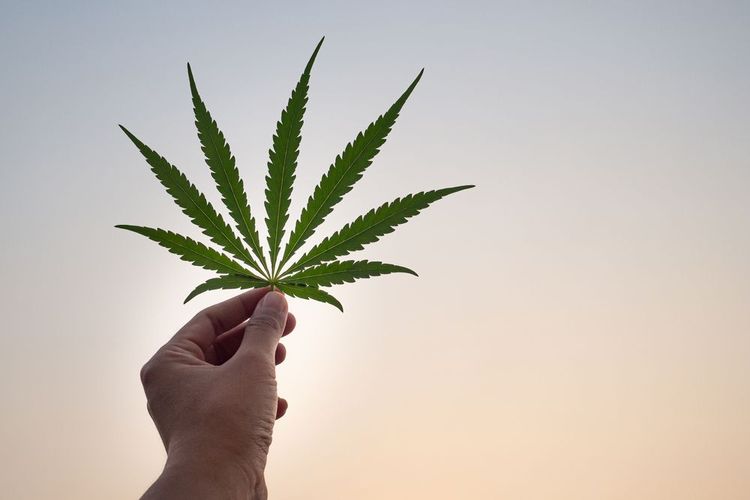CBD stops coronavirus in test tube
Does cannabis compound help against covid?

Initial research suggesting that a popular non-psychoactive compound derived from marijuana could help prevent or treat COVID-19 warrants further investigation in rigorous clinical trials, researchers say.
Several recent laboratory studies of cannabidiol (CBD) have shown promising results and attracted media attention.
However, many other potential COVID treatments that have shown promise in the test tube - from hydroxychloroquine to various drugs used to treat cancer and other diseases - have not shown benefit in clinical trials for COVID-19 patients.
Marsha Rosner of the University of Chicago led a team that found that in laboratory experiments, CBD appeared to help contain SARS-CoV-2 in infected cells. "Our results do not suggest that this also works in patients. Our results support a clinical study," she said.
Using small doses of highly purified CBD, roughly equivalent to what patients receive in an oral medication already approved for severe epilepsy, Rosner and colleagues found that CBD did not stop the coronavirus from infecting cells in the test tube.
Rather, it worked shortly after the virus entered cells, preventing it from making copies of itself, in part by affecting the inflammatory protein interferon. According to a report in Science Advances, they found similar effects in infected mice.
In a group of adults with severe epilepsy, the researchers found that those taking the approved CBD drug had fewer cases of COVID-19. However, a review of a small number of patients does not provide conclusive information. According to Rosner, only randomized clinical trials can do that.
"I know my message is not what people want to hear," she said.
Low doses of tetrahydrocannabinol (THC) - the marijuana ingredient that causes the high - cannabidiolic acid (CBDA), cannabidivarin (CBDV), cannabichromene (CBC) and cannabigerol (CBG) did not keep the virus away from cells or prevent it from multiplying , found her team.
"Not only did THC not work, but combining it with CBD also prevented CBD from working," Rosner said.
NO COVID REMEDIES IN CBD PHARMACY
Another team recently reported in the Journal of Natural Products that high doses of CBG and CBDA prevent the coronavirus from entering cells.
Richard van Breemen of Oregon State University told Reuters that the doses his team tested were not toxic to the cells. It's not yet clear if similarly high doses would be safe for humans, his team said.
"You want the lowest possible effective dose," Rosner said of possible side effects since the drug is filtered through the liver.
The CBD tested by her team was over 98% pure, while commercial products are far less pure. "People shouldn't run out and get CBD from their favorite pharmacy," she said.
CBD products are now available in many forms and are touted as a remedy for pain and other ailments, often without clinical evidence.
Small CBD studies in people with COVID-19 are underway.
In a completed study, researchers in Brazil randomly assigned 105 patients with mild or moderate COVID-19 to receive CBD or a placebo for 14 days on top of standard care. According to a report in Cannabis and Cannabinoid Research in October, CBD had no apparent effect.
In a proof-of-concept study at Sheba Medical Center in Israel, researchers randomly assign patients with mild COVID to CBD or a placebo.
An early-stage study at Rabin Medical Center, also in Israel, aims to test the effects of CBD in severely or critically ill patients. The leader of the study, Dr. Moshe Yeshurun, however, told Reuters that finding participants was difficult because the current wave of coronavirus caused by Omicron "consists mainly of patients with mild to moderate illness".
Rosner's team is currently exploring the possibility of a clinical trial that would likely focus on asymptomatic or mild cases of COVID. In the meantime, she's concerned that media reports overstating the potential of cannabinoids are tricking people into self-medicating with CBD, stopping wearing masks, and avoiding vaccinations.
"We'd like to be able to say specifically that a certain dose of cannabinoids is helpful," she said, but as of this writing, "vaccine-induced antibodies and antibody drugs are much more effective at blocking infection."






